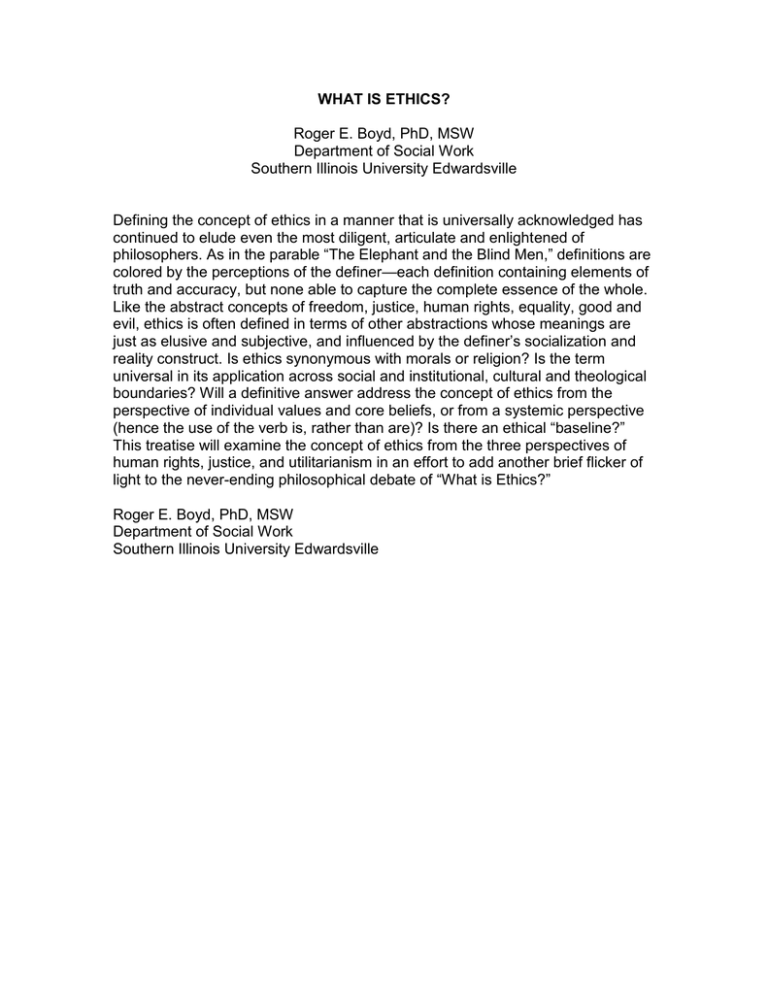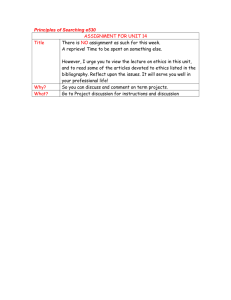WHAT IS ETHICS? Roger E. Boyd, PhD, MSW Department of Social Work
advertisement

WHAT IS ETHICS? Roger E. Boyd, PhD, MSW Department of Social Work Southern Illinois University Edwardsville Defining the concept of ethics in a manner that is universally acknowledged has continued to elude even the most diligent, articulate and enlightened of philosophers. As in the parable “The Elephant and the Blind Men,” definitions are colored by the perceptions of the definer—each definition containing elements of truth and accuracy, but none able to capture the complete essence of the whole. Like the abstract concepts of freedom, justice, human rights, equality, good and evil, ethics is often defined in terms of other abstractions whose meanings are just as elusive and subjective, and influenced by the definer’s socialization and reality construct. Is ethics synonymous with morals or religion? Is the term universal in its application across social and institutional, cultural and theological boundaries? Will a definitive answer address the concept of ethics from the perspective of individual values and core beliefs, or from a systemic perspective (hence the use of the verb is, rather than are)? Is there an ethical “baseline?” This treatise will examine the concept of ethics from the three perspectives of human rights, justice, and utilitarianism in an effort to add another brief flicker of light to the never-ending philosophical debate of “What is Ethics?” Roger E. Boyd, PhD, MSW Department of Social Work Southern Illinois University Edwardsville

